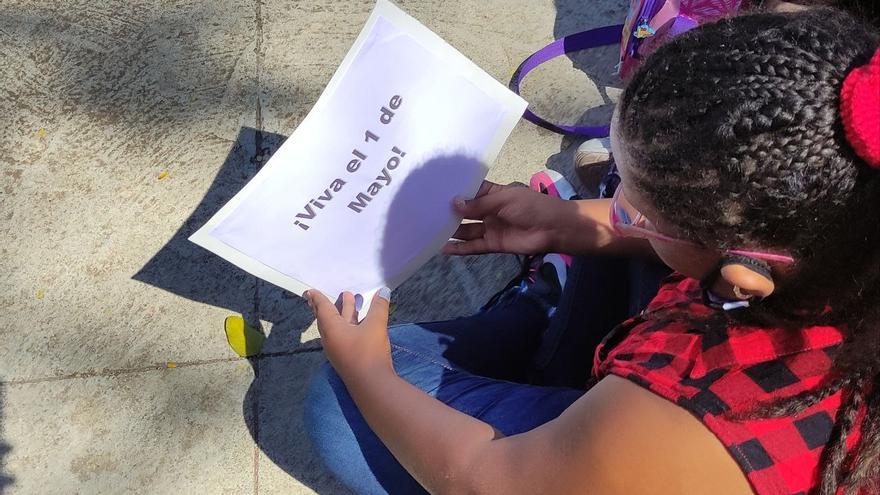
![]() 14ymedio, Juan Diego Rodríguez, Havana, 29 April 2022 –President Miguel Díaz-Canel’s invitation to participate in the May Day parade is not extended to all Cubans. The exception is the numerous activists and independent journalists who this week have received a blunt warning from State Security: do not leave your homes this Sunday.
14ymedio, Juan Diego Rodríguez, Havana, 29 April 2022 –President Miguel Díaz-Canel’s invitation to participate in the May Day parade is not extended to all Cubans. The exception is the numerous activists and independent journalists who this week have received a blunt warning from State Security: do not leave your homes this Sunday.
The last of them, the writer and photographer Ariel Maceo , who this Thursday was summoned and threatened by the political police so that he would not attend the march called by the Government. “I told them they can’t control me. He says yes, but no. Because if they could control me then they wouldn’t have to cite me because they fear I’ll do something,” the young man writes in a post on his networks.
Right there, he admits that he was upset when the agent who ’attends’ him began to ask him about his private life. From how he met his girlfriend he went on to say, Maceo details, “that we believe they are like the FBI,” to which the writer replied: “You are not like the FBI, but like the Gestapo and the Stasi, leave the film, that Cuba is a dictatorship.. Explaining to a State Security agent why Cuba is a dictatorship is, Maceo reasoned, “like explaining to a child that he can’t eat the cookie on the floor, he’s going to eat it just the same.”
The political police also summoned and warned independent reporters Yoe Suárez, from Diario de Cuba; Anay Rendon, from Cubanet; Geysi Guía, from Periodismo de Barrio, and Luz Escobar, from 14ymedio.
Journalist Miriam Celaya was not summoned to a police unit, but on Tuesday she received a visit from ’Agent Alberto.’ “Very urbane, even forcedly courteous,” Celaya says in a Facebook post, he told her that “no street activity will be allowed on May Day.”
“Seen like this, anyone would think that they were going to suspend the march to ’celebrate workers’ day’ called by the PCC [Cuban Communist Party] and that I – as a close friend to whom I told of the brief meeting jokingly told me – I would have to keep the little flag and the tennis shoes that I would have had ready to march with the non-existent CDR of my block,” the journalist ironically wrote. “But no; against all logic, HeCallsHimselfAlberto took the trouble to come and warn me not to go where I, of my own free will, was not going to go.”
Celaya argues that “either there are those who earn salaries and benefits very easily, or they are simply very nervous: “J11” and the prisons full of political dissidents, the massive and constant exodus, the shipwreck of the system, the insurmountable economic crisis and God knows which and how many more demons are affecting the sleep of the Cerberus canines and of the maximum fat cats of Power. And, obviously, they are also affecting their decisions.”
The harassment of Cubans who in one way or another have expressed dissatisfaction with the regime contrasts with the childish enthusiasm with which the government is calling the march from the official media.
To the “ten reasons not to stop going to the parade on May Day” distributed by buildings and social networks of officials, and which include “breaking the daily routine,”,”exercising” and “taking the best live photos live,” something less friendly joins: the usual pressures in the workplace.
Thus, a worker from a state mechanical company denounces to this newspaper that his boss has warned the employees that if they do not attend the parade on Sunday “it will affect the payment of utilities,” since their absence will lower “the points of their evaluation… They are making a list and handing out a T-shirt,” explains the man. “They told us that we have to go on our own to El Vedado and there they will give us a snack. I wonder with what transport, because how is that?”
This Friday, in several parks in Havana, groups of schoolchildren could be seen with rudimentary signs that read “Long live May 1!” In the Mariana Grajales Park, at 23rd between C and D, the teachers handed out Cuban flags among them while making the children repeat: “Long live Fidel! Long live May Day!”
Some of the kids were dressed as doctors and others as peasants – the Cuban labor vanguard — although most wore their school uniforms.
Not far from there, in the Parque de El Quijote, the scene was repeated, under the critical gaze of some passers-by. “These children have not even eaten breakfast,” questioned a woman. The little ones reluctantly repeated the slogans while playing by crumpling up the poster and hitting a classmate’s head with it.
____________
COLLABORATE WITH OUR WORK: The 14ymedio team is committed to practicing serious journalism that reflects Cuba’s reality in all its depth. Thank you for joining us on this long journey. We invite you to continue supporting us by becoming a member of 14ymedio now. Together we can continue transforming journalism in Cuba.
